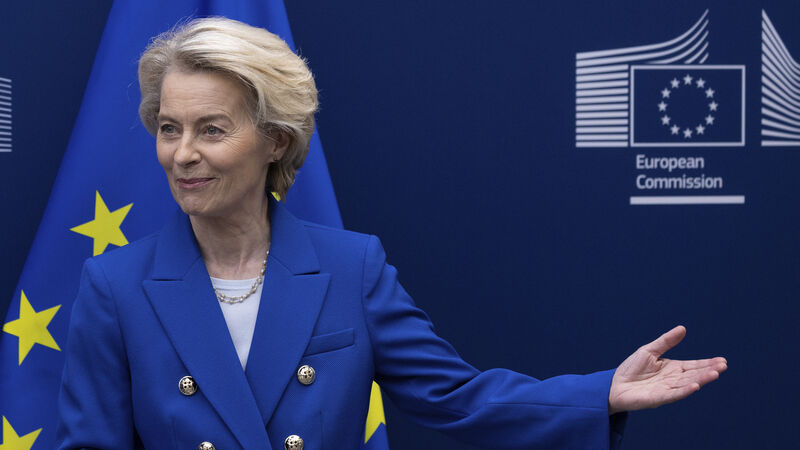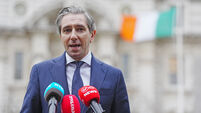EU chief welcomes Trump tariff pause but is quiet about bloc’s retaliatory plan

European Commission President Ursula von der Leyen stands prior to a meeting with Iceland’s Prime Minister Kristrun Frostadottir at the EU headquarters in Brussels (Omar Havana/AP)
European Commission President Ursula von der Leyen welcomed President Donald Trump’s decision to temporarily halt most US tariffs, but did not say whether the European Union intends to press ahead with its own retaliatory measures.
“I have authorised a 90 day PAUSE,” Mr Trump said, after recognising the more than 75 countries that he said have been negotiating on trade and had not retaliated against his latest increases in tariffs.












